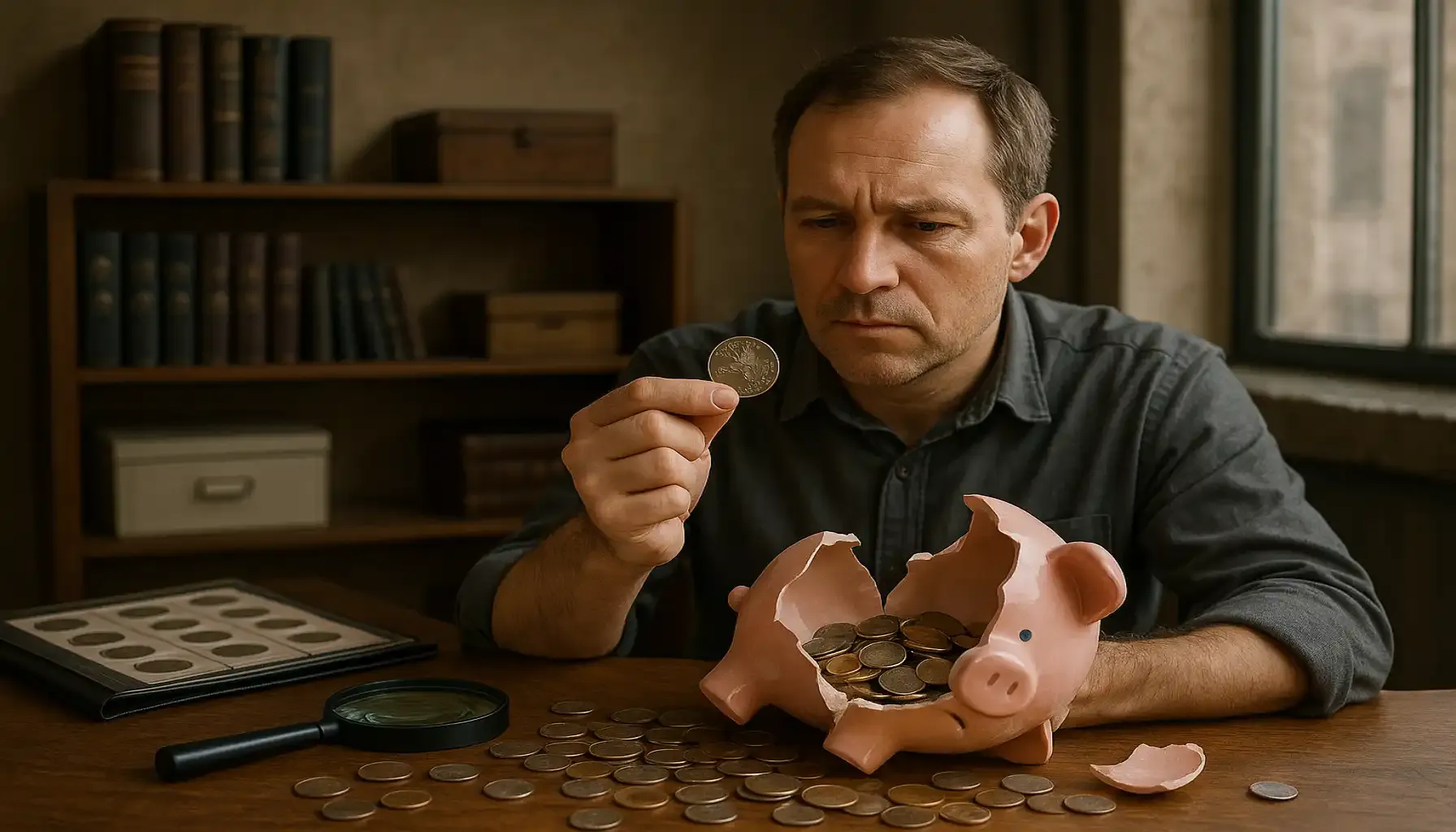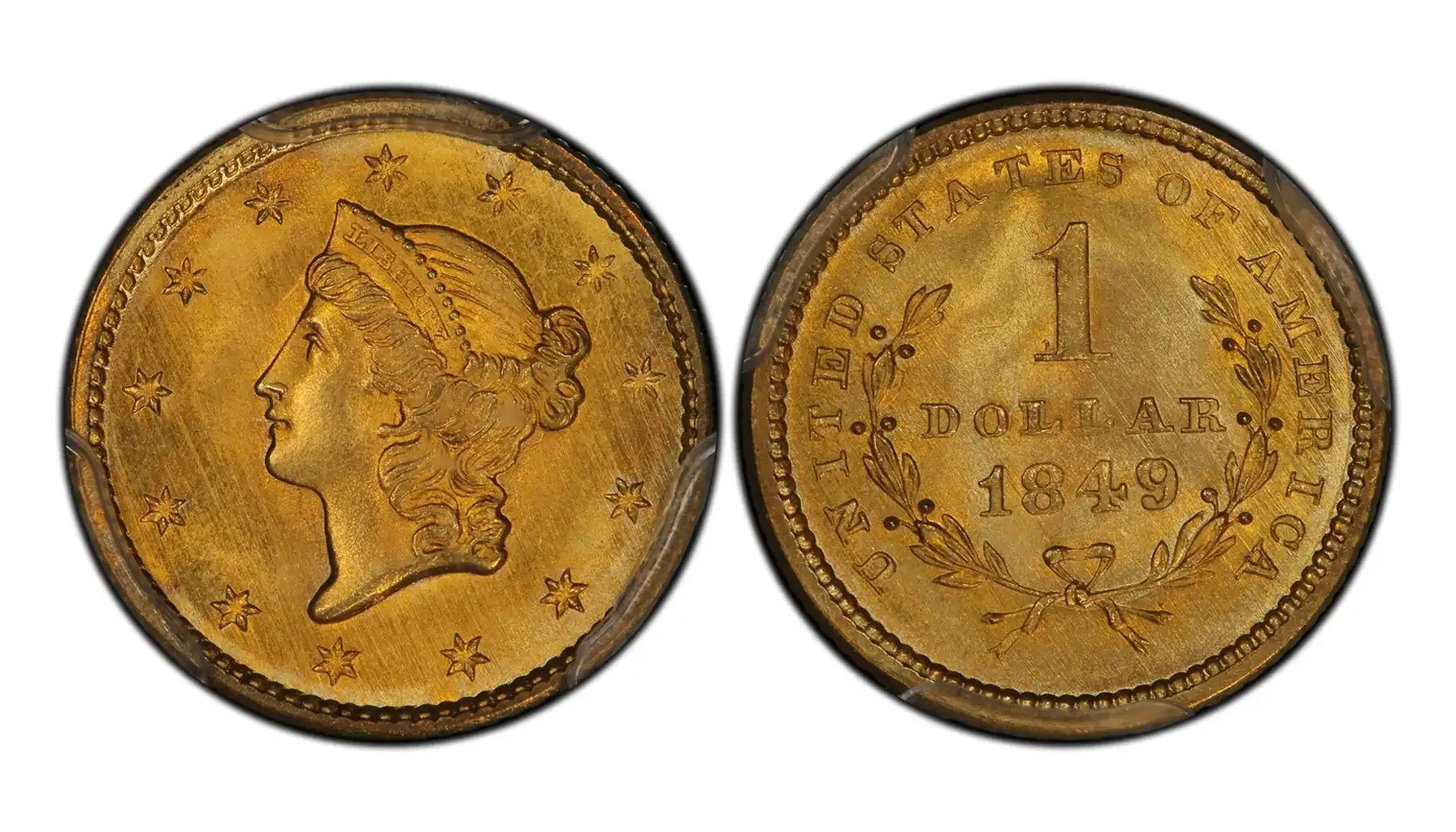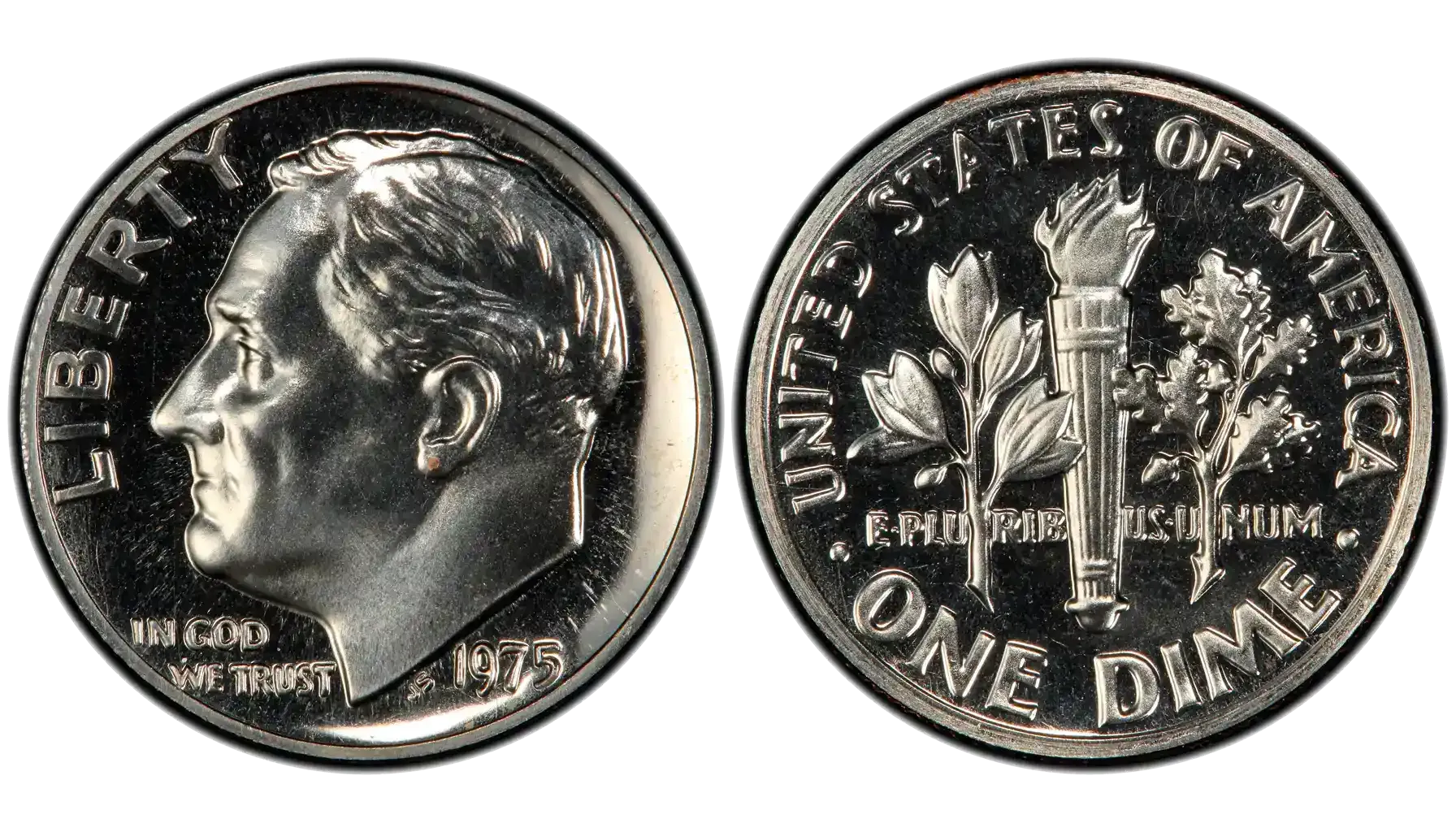Contents:
The world of numismatics is a unique space that may boast millions of designs, special attributes, and dozens of denominations, each of which is a genuine reflection of its time. Sometimes, however, one may have second thoughts about certain units of currency which have been said to exist but appear to be counterfeits. Is this the case of a renowned Kennedy gold half dollar?
This first appeared in 1964 as a tribute to President John F. Kennedy, yet it was a silver-minted piece, which is frequently confused with its golden counterpart. So, here comes the dilemma: what are the real gold versions? What is the gold plated Kennedy half dollar value? And which features identify this coin as a genuine piece?
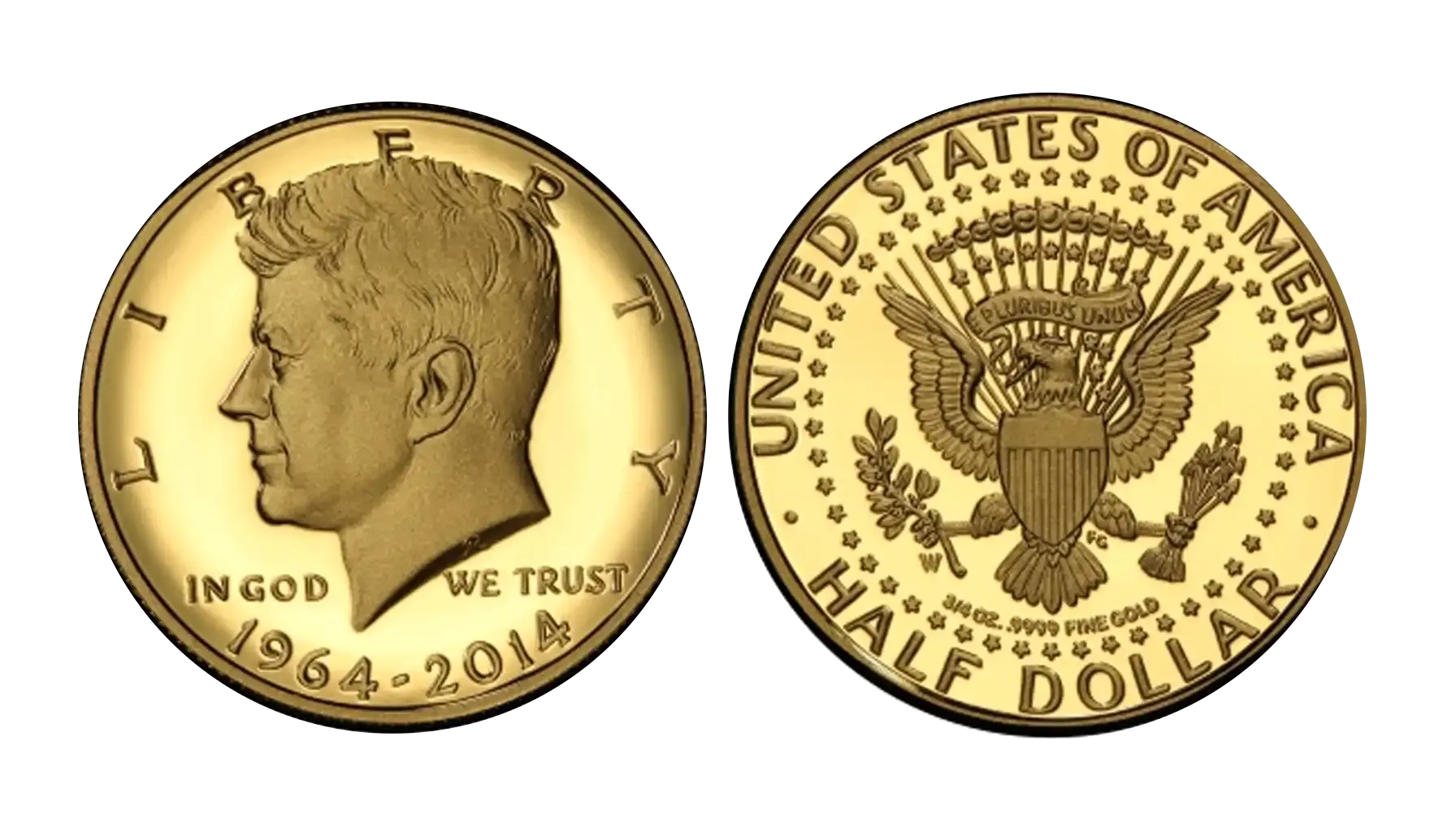
Origins and Silver Roots
In order to commemorate the fallen leader, John F. Kennedy, in 1964, the US Mint released the Kennedy 50C. Originally, these were the silver creations with a weight of 12.5 grams. It was one of the fastest design turnarounds (see Franklin Half Dollars) and a loud tribute to the late president, who was cruelly assassinated in November 1963, which could not leave the US public indifferent.
Although the design was rather consistent, its composition changed over time. From 1965 to 1970, the silver content was reduced to 40%, which was the result of a broader shift in US monetary policy as the government began phasing silver out of everyday coinage. By 1971, the Kennedy 50C coin had transitioned to a copper-nickel clad composition, which was the end of the silver era in the US.
By that time, many collectors would search for a Kennedy half dollar gold, even though no official gold version was issued for circulation. Some error pieces, for instance, carried altered finishes that led to discussions about the gold and silver Kennedy half dollar collection, but these remain private-mint curiosities rather than US Mint strikes.
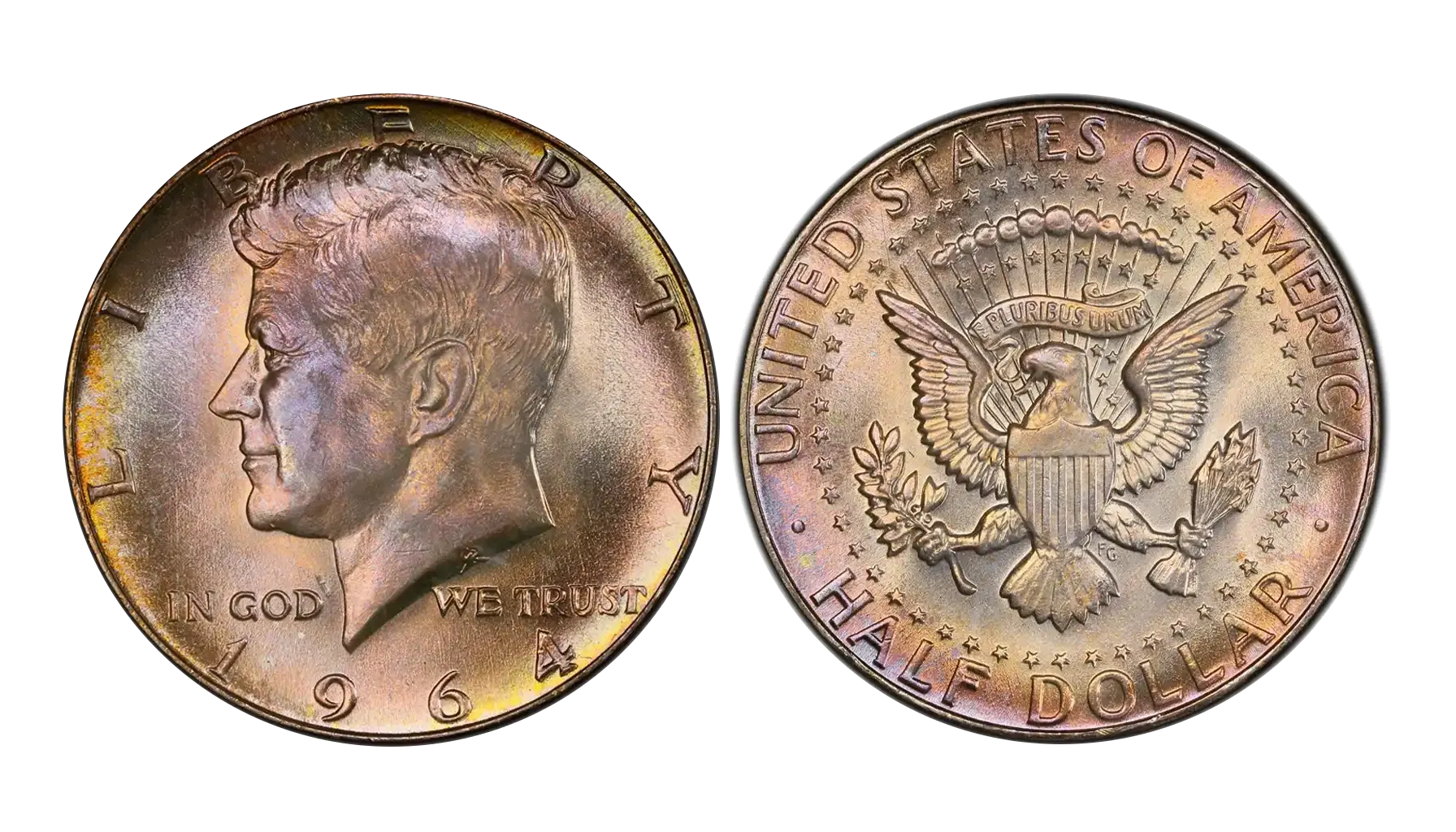
Timeline: 1964–Present Mintage Highlights
1964: First issues struck in 90% silver
1965–1970: Silver content reduced to 40% during the silver shortage
1971–Present: Copper-nickel clad composition for circulation
1992: Special 40% silver proof sets for collectors
2014: 90% silver reverse proof released for 50th anniversary
Related article: 1963 Half Dollar Value: The Last One in the Series
Are There Real Gold Kennedy Half Dollars?
Although rumors are usually only rumors, there actually exists a gold-plated Kennedy half dollar (along with its traditional copper-nickel and silver versions), which was issued as part of the 50th anniversary campaign in 2014. The 2014 gold Kennedy half dollar contains 0.500 troy ounce of 24K gold and is of a limited mintage.
Many pieces marketed as 2014 Kennedy gold half dollars are never plated, for it is a genuinely solid gold coin. Nevertheless, when it comes to the earlier issues, malevolent numismatists may plate a standard clad coin to fake a 24k gold Kennedy half dollar, but these never match the intrinsic bullion content of the true, officially released issues. If you seek a true gold piece, look for the Mint’s 2014 version and avoid plated tokens – always!
Authentic Gold Issues vs. Plated Pieces
Issue | Composition | Mintage | Specs | Value Range |
2014 50C Gold JFK 50th Anniversary, DCAM (Proof) | 0.500 oz of 24K gold | 73,772 | 23,33 g, 99.99% gold | $500 – $650 |
Gold-Plated 50C | Clad core (75% Cu, 25% Ni) + plating | Unlimited | 11.34 g clad + thin plating | $3 – $10 |
The Main Characteristics
Obverse: The obverse features a high-relief portrait of President John F. Kennedy, based on the original 1964 design by Gilroy Roberts, along with the inscriptions “LIBERTY” surrounding the profile along the upper rim, “IN GOD WE TRUST” on each side of the neck, and the date “2014”.
Reverse: The reverse displays a modified version of the Presidential Seal, originally designed by Frank Gasparro, i.e., a heraldic eagle with a shield, holding an olive branch and arrows, with a circle of stars above its head. As for the inscriptions, the reverse introduces “UNITED STATES OF AMERICA” along the upper rim, “HALF DOLLAR” along the bottom rim, “3/4 OZ. .9999 FINE GOLD” below the seal, and the mint mark “W” to the left.
Specifications | |
Denomination | 50 cents |
Year of Issue | 2014 |
Mint | West Point Mint (W mint mark) |
Finish | Proof |
Composition | 99.99% Gold (24 karat) |
Weight | 0.7500 troy oz (approximately 23.33 grams) |
Diameter | 30.61 mm (1.205 inches) |
Edge | Reeded |
Mintage Limit | 73,772 (as per PCGS) |
Initial Issue Price | $1,240 USD |
Packaging | Presented in a special Mint case with a certificate |
Certain collectors and private mints do issue special 1964 gold Kennedy half dollar sets, yet these often pair a standard silver proof with a matched gold-plated or gold-finished coin. Presentation boxes and certificates accompany each set to highlight the dual-metal theme, though they may carry little to no value anyway.
To learn more about the authentic instances and their real worth, please refer to Coin ID Scanner. This is a reliable instrument to identify coins by photo and check their backgrounds on the spot. Do not let coin traders fool you!
Key Dates to Know: 1964, 2014, and More
Over the decades, the Kennedy 50C coin could have seen several turning points that made certain years especially significant for collectors. 1964 was the inaugural year, with the coin having been released just months after JFK’s assassination. And the worth of such an instance is equally immense – $156,000 for SP68 (Stack's Bowers, August 2019).
Fifty years later, the 50th anniversary Kennedy half dollar gold proof coin arrived as a special proof containing 0.7500 oz. of pure gold.
1964: First Kennedy half dollars in 90% silver; high collector demand
1976: Bicentennial issue with dual “1776–1976” dates and special reverse
2014: 50th anniversary gold proof with 0.500 oz of 24 K gold
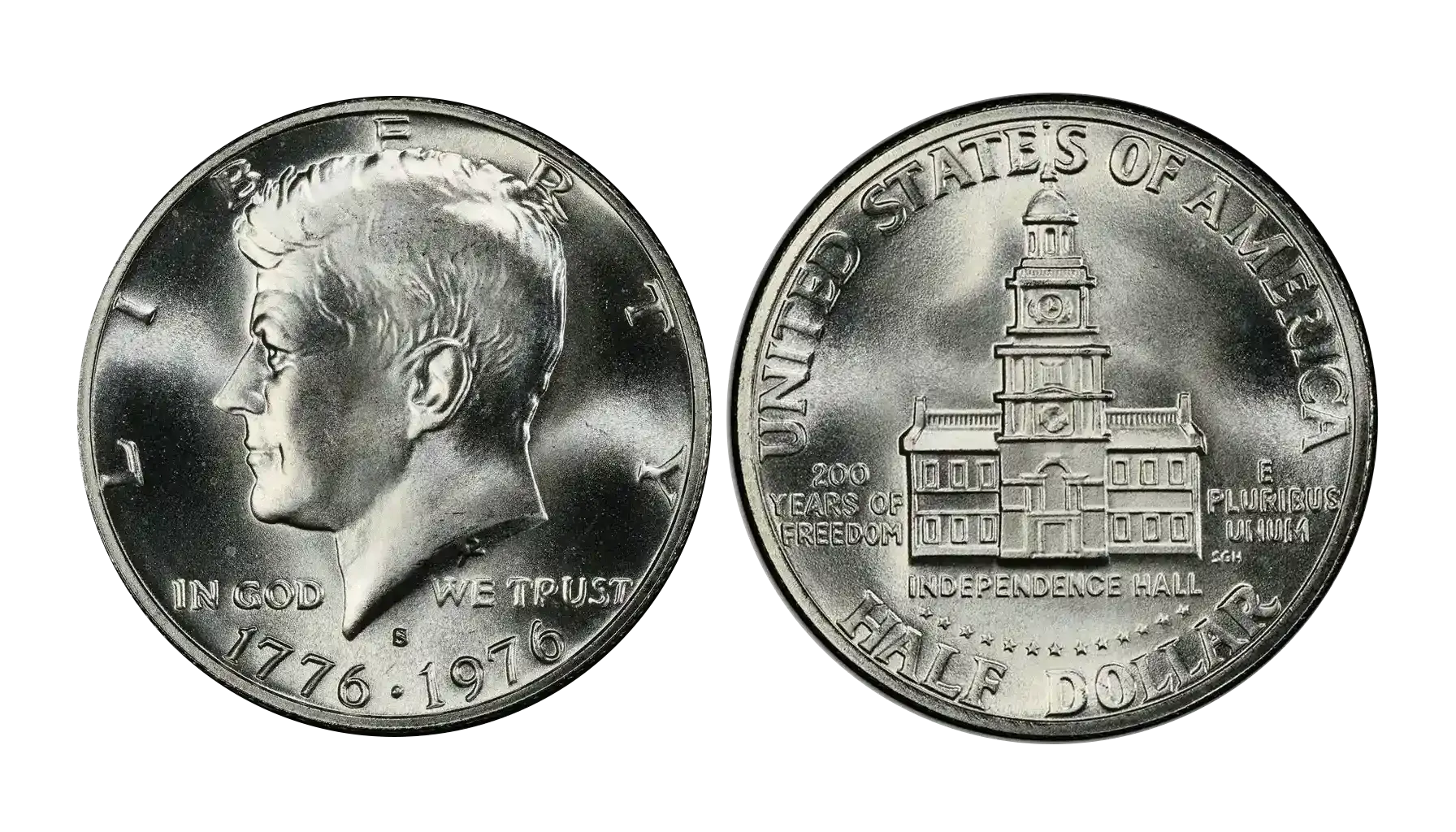
How Much Is a Gold Kennedy Half Dollar Worth?
The worth of this prominent coin cannot be considered outside the rest of the series. Original early issues of the Kennedy 50C instances, especially those minted in 1964, have historically carried higher market values because of their silver content, historical significance, and collector demand. The 1964 version was the only year struck in 90% silver for circulation, and it matters.
Indeed, limited special editions like the 2014-W Gold Proof were sold at high premiums because of their gold content and limited mintage, but their values are not that impressive anyway. Let us compare those prominent versions one by one.
Type | Composition | XF/AU | MS65/PR65 | MS/PR70 |
1964 Silver JFK | 90% Silver | $12–$18 | $25–$50 | $200+ |
1965–1970 Silver | 40% Silver | $7–$12 | $20–$40 | $150+ |
1976-S Silver Proof | 40% Silver (Bicent.) | $10–$15 | $25–$45 | $100–$200 |
1998-S Matte Proof | Copper-Nickel | — | $400–$600 | $1,000+ |
2014-W Gold Proof | 99.99% Gold (24k) | — | $1,500–$1,800 | $2,000–$2,500+ |
Note: Prices are approximate as of mid-2025 and can vary depending on the online numismatic auction chosen.
How to Spot Fake or Overhyped Gold Pieces
Understanding the true value should start with knowing exactly what you are looking at and, just as importantly, what to avoid. So, how to identify fake coins?
Check the Composition
All that glitters is not gold. If your coin is simply labeled "gold-layered" or "24k gold-plated," this is not made of solid gold. These often start as standard Kennedy 50-cent creations and are coated with a microscopic layer of gold after minting (not by the US Mint, but by private companies only).
Look for Official Mint Marks and Documentation
Genuine US Mint units of currency will include a mint mark (such as "W" for West Point), authentic packaging, and a certificate of authenticity (COA). Plated instances, in turn, usually lack these features and are often sold in plastic capsules or unofficial display boxes.
Test the Metal (When in Doubt)
If you already own a coin and you are still unsure of its composition, consider appealing to a professional appraisal, gold testing kits (acid tests or electronic testers), specific gravity tests to measure density, and weighing it, for a real half should be 23.33 grams (0.750 troy oz).
Avoid Misleading Terms
Be cautious of listings that use vague or deceptive language like “golden tribute”, “24k enhanced”, or “official-looking commemorative”. These are either fakes or plated, non-precious “originals” designed for display rather than investment.
Always double-check before you buy. This is the true golden rule.

